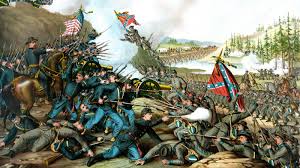In this article, we shed light on five common misconceptions about slavery and the actual impacts of slavery which have continued to be minimised.
The Irish Slavery Myth There’s a prevalent misconception that the Irish served as enslaved people; however, this isn’t true. Public librarian and historian Liam Hogan shared in a paper, “The Myth of ‘Irish Slaves in the Colonies,” “Persons from Ireland have been held in various forms of human bondage throughout history, but they have never been chattel slaves in the West Indies.” While many Irish people were sentenced to indentured servitude in America, they certainly had more freedom than the Enslaved Africans, and most Irish came to serve voluntarily.
There’s a prevalent misconception that the Irish served as enslaved people; however, this isn’t true. Public librarian and historian Liam Hogan shared in a paper, “The Myth of ‘Irish Slaves in the Colonies,” “Persons from Ireland have been held in various forms of human bondage throughout history, but they have never been chattel slaves in the West Indies.” While many Irish people were sentenced to indentured servitude in America, they certainly had more freedom than the Enslaved Africans, and most Irish came to serve voluntarily.
However, they were called “white slaves” derogatorily, and numerous people have mistaken indentured servitude with slavery intentionally to prove a point on Irish disadvantage in comparison to other American immigrant groups. While indentured servitude was challenging work, it was temporary with a fixed time of service and even when the servants had children during their service, their children were considered free people.
The myth that the South did not secede from the Union over slavery
Many years down the line, there’s an attempt to rewrite history and erase the fact that the reason the South seceded from the Union was not related to slavery. This is a valiant attempt to redefine and paint a better image of the South, only it’s very dishonest.
While the South had the right to secede, they didn’t secede from the Union because of that right. In the 1860 official declaration of the reason for their secession, delegates from California stated
“an increasing hostility on the part of the non-slaveholding States to the institution of slavery.”
They protested that some states in the North supported abolitionist movements and allowed black men to vote. They also complained because they said ending slavery injured commerce and growth.
The myth is that a tiny percentage of Southerners enslaved people.
This was to solidify the myth of the southern states seceding for a reason other than slavery. However, according to the 1860 census, over 32% of families in the South had enslaved people, with some states being way above that figure and very few states being below that figure.
However, irrespective of these figures, most southern families who didn’t have slaves aspired to have them as it symbolised wealth and sustained the ideology of white supremacy.
The myth that the Union soldiers were fighting to protect enslaved people
This is a myth from the other side of the coin. The Union soldiers didn’t commit war against the confederate army because they cared so much about the enslaved people.
Abraham Lincoln and his army went to war to preserve the Union and hold the nation together. While it was no news that Abraham Lincoln hated slavery, his main goal was to keep the Union, and he wrote in the August 1862 New York Tribune about how he was willing to compromise even on his desire that all slaves be free to save the Union.
Black enslaved, and free men fought in the civil war for the confederacy
To solidify the argument that the reason for the secession wasn’t linked to slavery but rather a battle over states’ rights, this misconception was birthed.
Enslaved people were on the battlefield, serving as cooks, cleaners and labourers, but there’s no proof that a reasonable amount of black soldiers fought union soldiers under the confederate army.
The confederate army policy banned black people from enlisting as soldiers till March 1865, in the last week of the conflict, when the Confederate government finally gave in to the plea that the enslaved people fight as a result of the losses they had procured.
